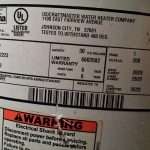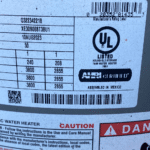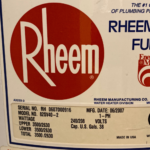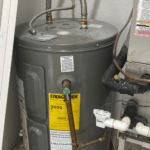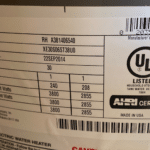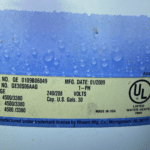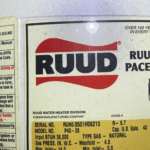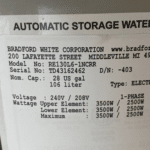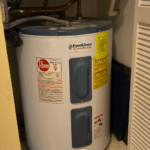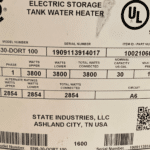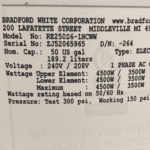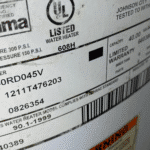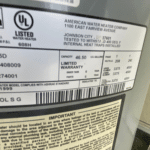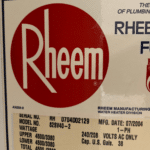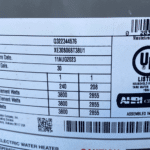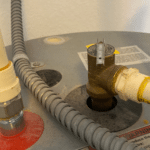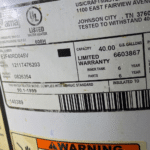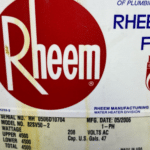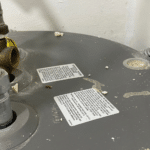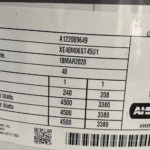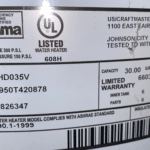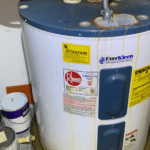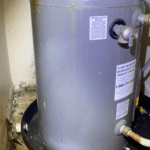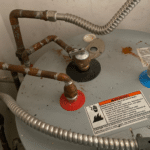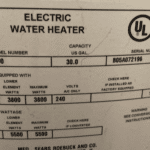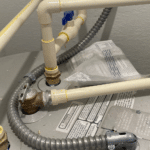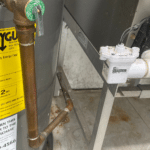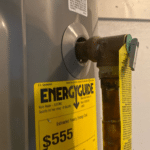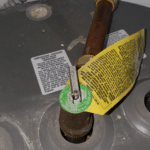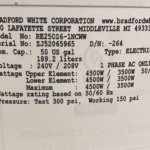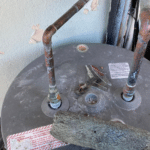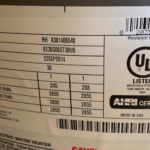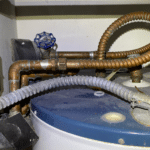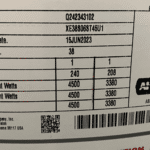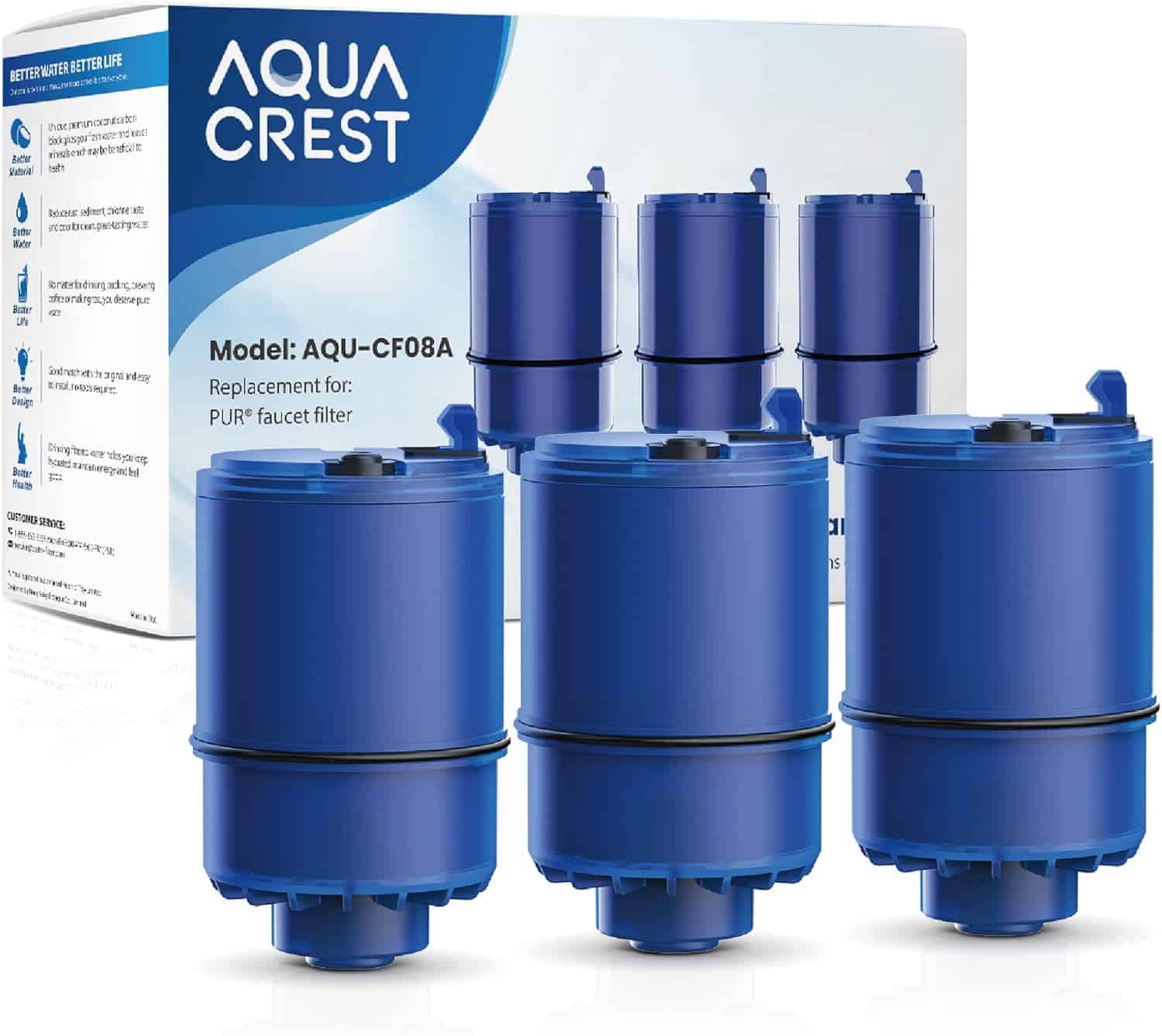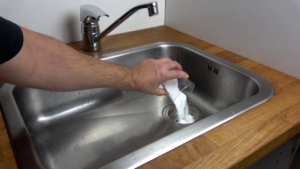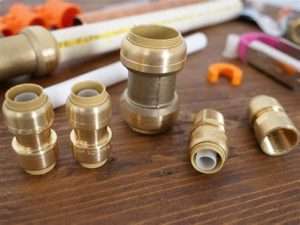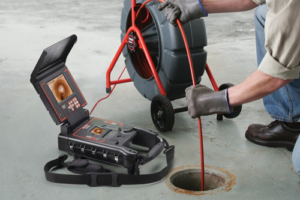Imminent Water Heater Failure: Signs You Shouldn’t Ignore
The Importance of a Functioning Water Heater
Hot water is essential for daily bathing, washing dishes, and laundry. A fully functional water heater is an essential part of any household or commercial property. Without hot water, daily routines can become draining and challenging to manage. Many people take their water heaters for granted until they stop working altogether. A broken water heater can be inconvenient at best and potentially dangerous at worst. When a water heater fails, it can lead to negative consequences such as flooding, mold growth, or even fires. In addition to practical concerns, fixing or replacing a broken water heater can also be an expensive process that requires professional help.
Introducing the Signs That Indicate Your Water Heater is Failing
Fortunately, there are many warning signs that your water heater may be on its last legs before it fails. By learning these signs and observing your unit regularly, you can act proactively to avoid the hassle and expense of emergency repairs or replacements. In this article, we will discuss the 7 most common indicators that your water heater is about to fail.
From strange noises to rusty hot water and high energy bills – we’ll cover them all in detail so you know exactly what to look out for. By being aware of these warning signs and taking action when necessary, you can keep your home or business running smoothly with a confidence that your hot showers will continue uninterrupted for years to come.
Age of Water Heater
The age of your water heater is a crucial factor in determining when it’s likely to fail. As with any appliance, water heaters have a limited lifespan and will eventually need to be replaced. Most conventional tank-style water heaters last 8-12 years, while tankless water heaters can last up to 20 years or more if well-maintained.
There are a few reasons why the age of your water heater matters. Firstly, as the unit ages, it becomes more susceptible to wear and tear.
Parts inside the unit may start to break down or corrode, leading to leaks or other issues. Additionally, older units are likely less energy-efficient than newer models, which can lead to higher energy bills and wasted resources.
The Lifespan of Different Types of Water Heaters
The lifespan of your water heater will depend on what type you have installed in your home. As previously mentioned, conventional tank-style heaters typically last between 8-12 years.
However, here’s a breakdown based on the specific type:
- Electric Tank-style: 8-12 years
- Gas Tank-style: 6-10 years
- Tankless (Electric or Gas): 20+ years with proper maintenance
Note that these are just averages and your specific unit could last longer or shorter depending on how well it’s been maintained and how much use it gets. If you’re unsure about the age of your water heater or whether it’s time for a replacement, consider calling a professional plumber for an inspection. They can examine the unit and give you an idea of how much longer you can expect it to last before needing replacement.
Strange Noises: Is Your Water Heater on Its Last Legs?
Your water heater is responsible for providing hot water to every tap and appliance in your home. It’s a vital component of your daily life, so it’s essential to know when it’s nearing its end.
One of the telltale signs that your water heater is about to give up the ghost is strange noises emanating from it. While some sounds are typical and expected, certain noises can indicate a severe problem.
The most common noise you might hear from your water heater is a low rumble or hum, typically occurring as the unit heats the water inside. However, if you hear loud banging or popping sounds, that could be a sign that sediment has built up in the tank.
Over time, minerals found naturally in water will collect at the bottom of your heater tank and harden into scale. This buildup can cause damage to your unit by creating pressure on the walls of the tank when heated water bubbles through it.
If left unchecked, this can lead to leaks or even rupture of the tank itself. Another worrisome sound from an aging water heater is hissing or sizzling noises inside or near the unit.
This could be due to a damaged heating element or thermostat malfunctioning and causing overheating within the system. If this happens, you may notice intermittent hot water supply or no hot water at all.
You must address this issue immediately to avoid further damage and potential safety risks such as scalding burns from overly hot water. Listening to strange sounds emanating from your home’s hot water supply helps indicate whether there are issues with its performance that require maintenance and repairs—or if it’s time for new equipment entirely!
Rusty Water: When Your Heater is Rusting from the Inside Out
One of the most alarming indicators that your water heater is about to fail is when your hot water comes out with a rusty or discolored tint. This happens when the inside of the tank begins to rust, and the rust flakes off and travels through your pipes into your faucets.
So why does this happen? Most water heaters are made of steel, which gradually deteriorates over time.
The interior lining of these tanks is usually made up of a thin layer of glass, porcelain, or plastic which can crack easily if abused. Once this protective layer cracks, the steel beneath starts corroding and releasing iron oxide particles into your water supply.
What Rusty Water Means for Your Water Heater
Rusty hot water could indicate that it’s time to replace your water heater before it fails. Even though some rusted tanks can last a few more years without leaking, they will continue to deteriorate internally until they become unusable.
Once enough rust accumulates in the tank; you might notice leaks or structural damage that could cause flooding in your home. Moreover, rusty water may contain harmful impurities such as iron bacteria or sediment that can affect the taste and quality of your drinking water.
Not only does rusty water create plumbing problems, but also it has potential health risks if left unaddressed. Therefore it’s vital to have a professional inspect and repair any rusty pipes or tanks before they cause serious harm to you and others around you.
While seeing discolored hot water might seem inconvenient at first glance, its underlying causes could indicate an imminent disaster waiting for you if left unchecked. If you’re experiencing brownish-yellowish hues from your taps when running hot showers, don’t hesitate to contact a qualified plumber or repair specialist to diagnose and fix the problem.
Leaks: When Water is Your Enemy
Water is essential for our daily lives, but you know something’s gone wrong when it starts pooling around your water heater. Leaks are one of the most prominent indicators that something isn’t right with your unit.
They can be caused by various factors, including corrosion, loose connections, or even excessive pressure in the tank. Ignoring leaks can lead to more significant problems and even cause flooding.
The Location of Leaks
Leaks can occur in various places around your water heater. The most common location for leaks is around the pressure relief or T&P valve.
This valve is designed to release pressure buildup inside the tank and prevent explosions due to overheating. If there’s too much pressure inside the unit, this valve will activate and remove water outside.
Another common location for leaks is at the bottom of your unit, where sediment build-up can corrode through your unit’s lining causing damage and leaks over time. Additionally, poorly fitted connections into your hot/cold input/output fittings leading into/out of your water heater can also cause water leaks.
Symptoms of Leaks from Water Heater Failure
If you notice any moisture around these areas or see a pool forming near the base of your unit, please take caution and call an expert immediately before permanent damage occurs – if ignored, small puddles could turn into a big mess fast, causing extensive damage to flooring and drywall in addition to creating an unsafe environment due to mold growth. In severe cases, you may also notice a significant reduction in hot water supply – another sign of a leak somewhere in your system, which lowers system efficiency. Keep an eye out for symptoms like sudden cuts in hot-water supply during usage, such as showering or dishwashing – call someone in immediately if you experience this type of issue, as it could indicate serious problems within the machine.
Inconsistent Temperatures: The Warning Sign You Can’t Ignore
We’ve all experienced the frustration of stepping into a shower only to be blasted with scorching hot or cold water. But if this is happening regularly, it could be a sign that your water heater is on its last legs.
Inconsistent temperatures are often caused by a malfunctioning thermostat, resulting in fluctuating temperatures and a lack of hot water when needed most. This issue can also be caused by sediment buildup in your tank, which can insulate the heating element and prevent it from effectively heating the water.
This means you may get bursts of hot water followed by lukewarm or cold water as the heating element struggles to keep up. Whatever the cause, inconsistent temperatures should not be ignored as they likely indicate a more significant issue with your unit.
The Importance of Addressing Inconsistent Temperatures Quickly
If left unaddressed, inconsistent temperatures can lead to more significant problems. The constant fluctuations in temperature can cause stress on your unit’s components and ultimately lead to system failure. Additionally, if sediment buildup is causing the issue, it can corrode your tank’s interior and shorten its lifespan.
In addition to potential damage to your unit, inconsistent temperatures can have practical implications for daily life. It can make showering uncomfortable or even dangerous if you can’t regulate the temperature consistently.
It may also make dishwashing or laundry more difficult if you cannot get hot enough water when needed. Addressing this warning sign quickly will prevent further inconvenience and potentially costly repairs.
High Energy Bills Caused By Water Heater Failure
As your water heater ages and begins to fail, you’ll likely start seeing an increase in your energy bills. This could be due to various factors, including increased strain on the unit as it tries to heat water with a diminished capacity or simply because it’s become less efficient over time. Sometimes, sediment buildup can cause the team to work harder than necessary to heat the water, leading to higher energy consumption and bills.
If you’ve noticed an unusual spike in your utility bills and suspect your water heater may be the culprit, you can do a few things. First, ensure it’s not an issue with any other appliances or systems in your home by checking for leaks or excess use.
If everything else seems normal, start monitoring your hot water usage closely and see if you can identify any patterns that correspond with higher energy usage. Consider calling a professional to assess the issue and provide recommendations for repairs or replacements as needed.
Conclusion: Water Heater Failure
Your water heater is one of the most essential appliances in your home – providing hot water for bathing, cleaning dishes and clothes, and countless other everyday tasks. That’s why it’s so important to watch for signs that it may be reaching the end of its useful life.
Several indicators could signal trouble ahead, from strange noises and rusty water to leaks and erratic temperature fluctuations. By staying vigilant and addressing issues early on – whether through regular maintenance routines or professional inspections – you can help extend the lifespan of your unit while saving money on repairs, replacements, or high energy bills down the line.
And if all else fails? Remember that new technology is constantly advancing – so even if you need a new water heater eventually, there are likely more efficient models available now than when you first purchased yours!


